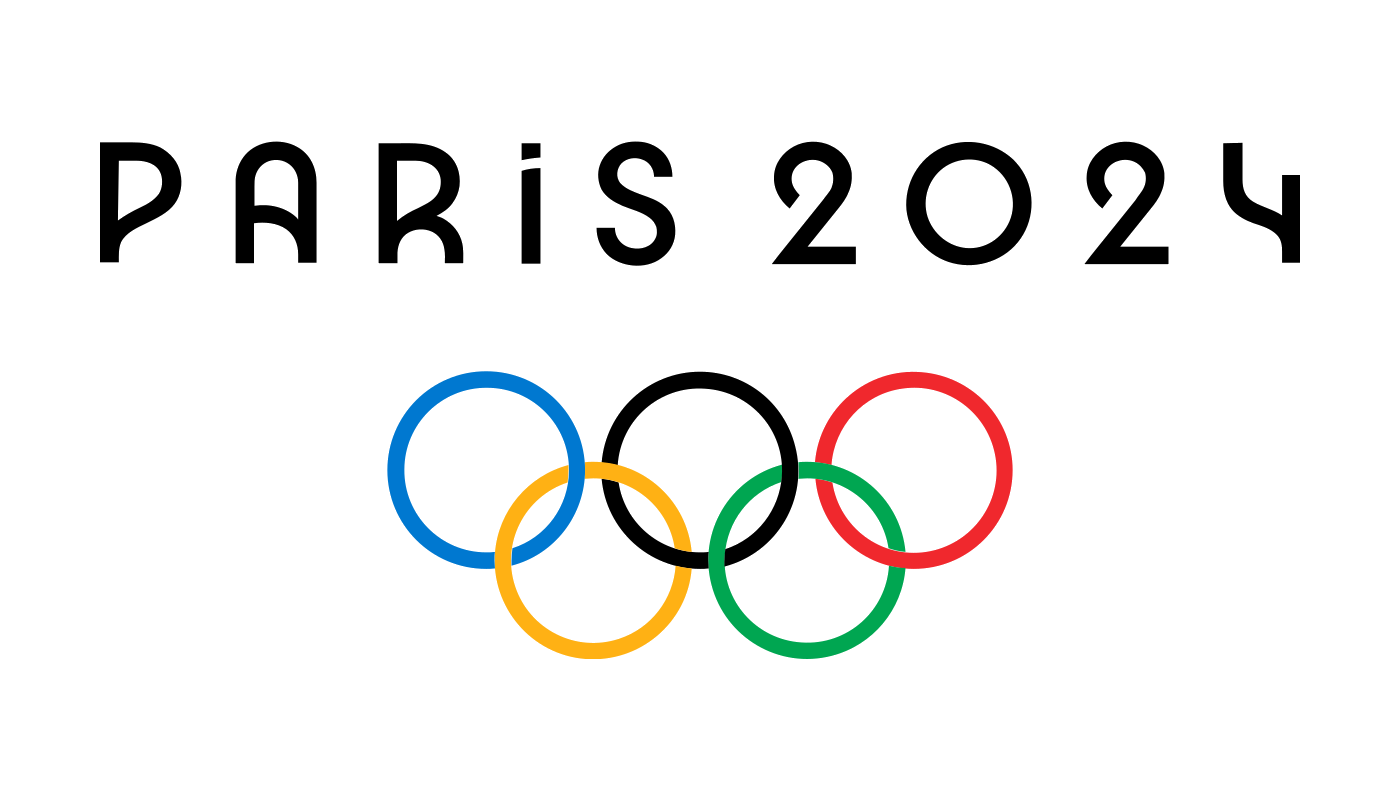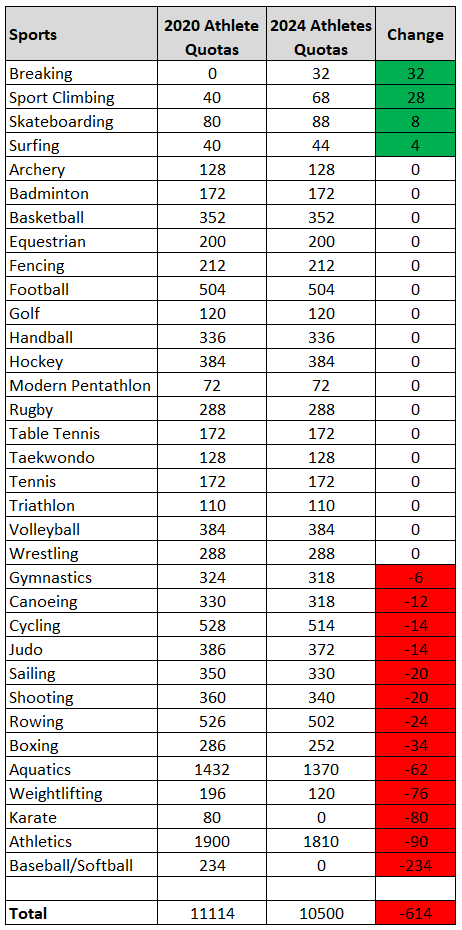
Changes to the Athletes Quotas for the 2024 Summer Olympics
- Paris 2024 Olympic Games
- Breakdancing
- Sport Climbing
- Skateboarding
- Surfing
- Gymnastics - Artistic
- Gymnastics - Rhythmic
- Gymnastics - Trampoline
- Canoeing - Slalom
- Canoeing - Sprint
- Cycling - BMX
- Cycling - Mountain Bike
- Cycling - Road
- Cycling - Track
- Judo
- Sailing
- Shooting
- Rowing
- Boxing
- Diving
- Artistic Swimming
- Swimming
- Water Polo
- Weightlifting
- Athletics
- Non-Olympic Sports
- Karate
- Baseball
- Softball
Last week we looked at the event changes between the 2020 and the 2024 Summer Olympic Games. The other notable change ahead of those games will be the number of athletes competing. Totallympics takes a closer look.
Using the qualification documents, the 2020 Olympics had an expected athlete quota of 11,114 (the final number was higher due to some sports having more athletes than expected qualify and the IOC allowing more athletes to compete at the games due to COVID-19, court appeals and via the refugee team). The 2024 Olympics is set to have a total of 10,500 athletes, a decrease of 614 quotas.
As baseball/softball and karate were not selected as host selected sports, the athlete quotas were completely removed. This saw a reduction of 234 and 80 quotas respectively. However, with the other host selected sports seeing an increase in athlete quotas, this reduction had a net effect of -242.
The remaining 72 quotas were split between the four sports with breaking getting the most quotas (32 athletes) as the sport is set to make its Olympic debut. Sport climbing, the only returning sport to get an increase in its total events sees a notable increase of 28 athletes while skateboarding and surfing will see increases of 8 and 4 respectively.
Of the 28 core sports, all of them either saw them maintaining their 2020 quotas or saw an overall decrease. Cycling is a bit unique as while the overall sport saw a decrease of quotas (-14 athletes), the BMX freestyle (+6) and track cycling (+1) disciplines saw an increase of athletes, but were offset by a decrease in mountain biking (-4) and road cycling (-17).
Among the core sports, athletics will experience the largest decrease with 90 fewer athletes expected to attend the 2024 games. Due to the removal of four events, weightlifting also has a significant decrease with 76 fewer athletes while aquatics rounds out the top 3 with 62 fewer athletes (-8 in artistic swimming, -6 in open water swimming, -26 in swimming and -22 in water polo). A summary of the quota changes can be seen in the table below.

Of the sports which lost athlete quotas most of them only saw losses of less than 6% of their total quotas from 2020. The two exceptions were boxing and weightlifting. Both sports have recently lost favour in the eyes of the IOC. Even after adjusting weightlifting having fewer events, both sports will experience a decrease of over 10% of their 2020 total.
While these athlete quota cuts were made by the IOC as a cost saving measure, they remain quite controversial. Detractors argue that it is not in the spirit of the Olympics and that it would make nations with smaller teams even smaller. What do you think, is the cost saving measures a necessary evil or are there other ways the IOC could cut costs?
- gubchandrolai, FancyFenchel, Sindo and 2 others
-
 5
5






Recommended Comments
Create an account or sign in to comment
You need to be a member in order to leave a comment
Create an account
Sign up for a new account in our community. It's easy!
Register a new accountSign in
Already have an account? Sign in here.
Sign In Now